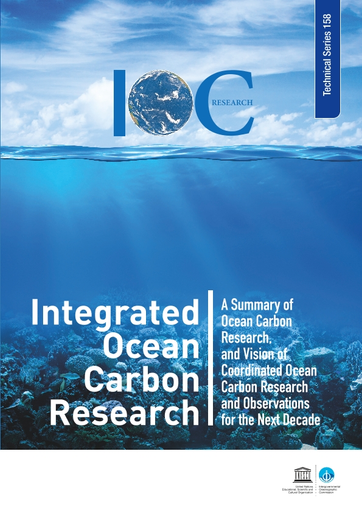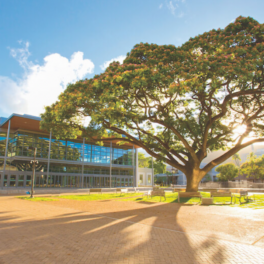Oceanographer co-authors strategy for next decade of ocean carbon research

In absorbing carbon dioxide, the oceans play a crucial role in regulating the climate, a role yet to be fully understood. SOEST oceanographer Christopher Sabine co-authored a newly published strategy for comprehensive and coordinated ocean carbon research over the next decade.
The new report, Integrated Ocean Carbon Research: A Summary of Ocean Carbon Knowledge and a Vision for Coordinated Ocean Carbon Research and Observations for the Next Decade, was published by the UN Educational, Scientific and Cultural Organization (UNESCO)’s Intergovernmental Oceanographic Commission (IOC). It sets out to accomplish the vital task of indicating the current gaps and future directions for the integrated ocean carbon cycle research.
The ocean is currently the blue lungs of our planet. However, the ocean’s ability to contribute to climate regulation may decline and even be reversed in the future. The new report thus examines available observations and research to determine whether the oceans will continue to “help” humanity or whether they will turn against it, making mitigation and adaptation to warming more difficult.
In developing the report, the IOC brought together experts from the five international research and coordination programs on ocean-climate interaction.
Sabine, who is one of the Lead U.S. editors of the report, said, “Integrating the ocean carbon research conducted through multiple international programs will enhance the U.S. investments in understanding climate change and possible solutions.”
“Bringing together the ocean carbon experts from different disciplines has created an exciting opportunity to address in a holistic fashion the critical questions of how the ocean affects and is affected by climate and our attempts to mitigate climate change,” stated Rik Wanninkhoff at NOAA, the other Lead U.S. editor of the report.
The report presents a synthesis of the state of knowledge about the oceans’ role in the carbon cycle and points to the way ahead. Its objective is to provide decision-makers with the knowledge needed to develop climate change mitigation and adaptation policies for the coming decade. It also emphasizes the importance of scientific knowledge to the taking of informed decisions within the United Nations Framework Convention on Climate Change.
Portions of this content provided by Gyami Shrestha, US Carbon Cycle Science Program.
Read also on UH News.




